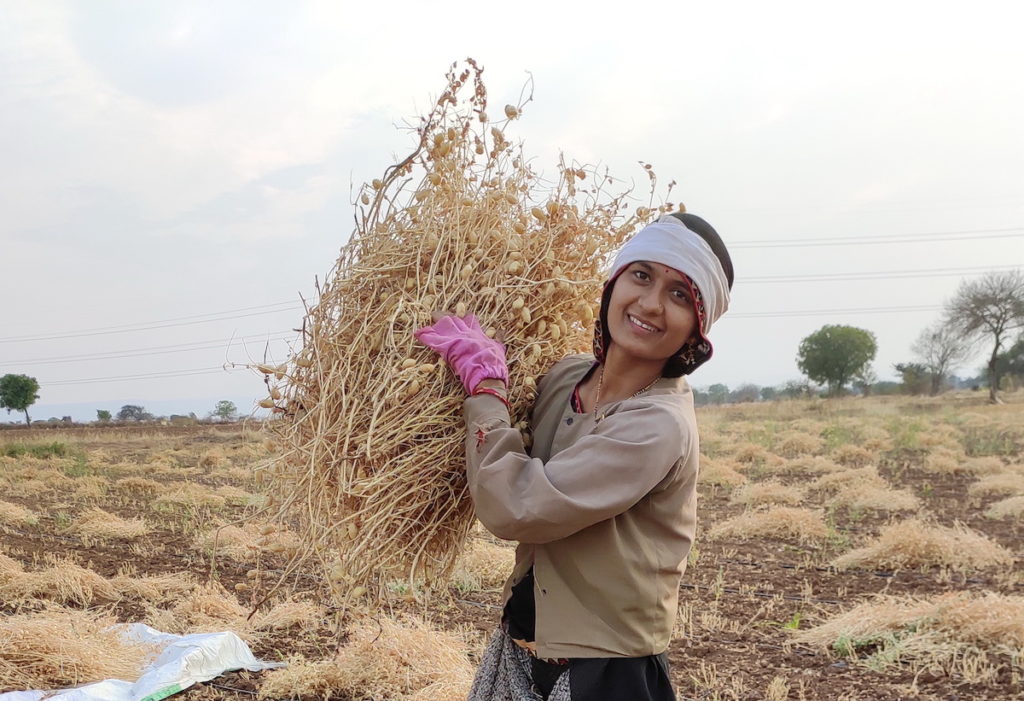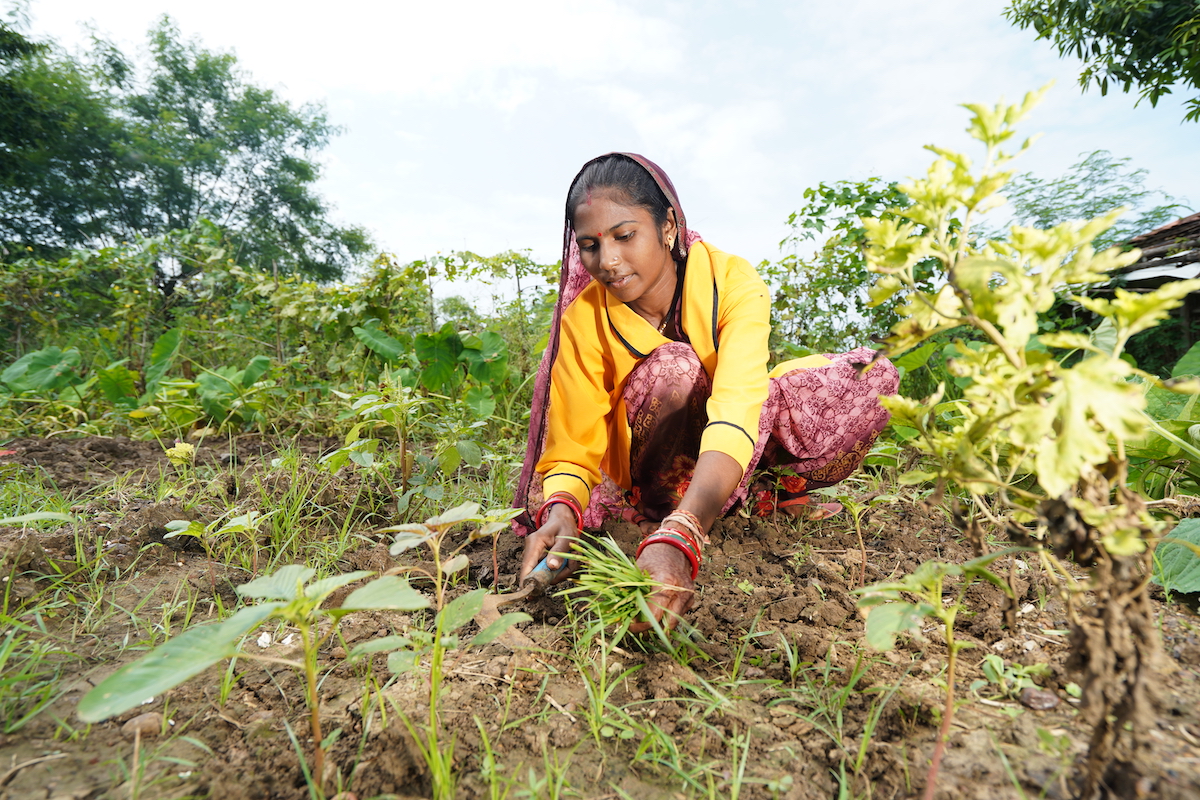In this Opinion piece, Shatadru Chattopadhayay, Managing Director, Solidaridad Asia argues for a voluntary Fair Farm Data certification standard, which ensures the data economy for smallholder farmers is fair and inclusive.
According to the European Commission, the value of the EU data economy is projected to grow to €829 billion by 2025. In the post-Covid world, data is at the centre of a new global economy: the data economy. Many consider data more valuable than currency. No wonder, in a rapidly evolving data landscape, more and more organizations are looking for ways to create value using their or someone else’s data.
This new economy brings opportunities and challenges for India’s 150 million smallholder farmers and their dependents, in particular. The data ecosystem is increasingly helping Indian farmers grow the right crops in the right way and with a better connection to markets, information, finance and agri-inputs and services.
Conversely, it can also turn these 150 million smallholder farmers into unpaid data harvesters for multinational companies. These companies would then “add value” to the data to sell the same farmers paid services, products and advertisements. At the same time, data protectionism – giving special privileges to local or state-owned companies – and data sovereignty can exclude farmers from global knowledge and services. The situation demands the development of a voluntary Fair Farm Data certification standard with social and economic sustainability metrics for production and trade in farmers’ data.
The Need for a Fair Farm Data Standard
The world of data is becoming a part of the ideological discourse. In many forums, statements like “data is the new oil” are made to create an ideological framework for data as a raw material that needs to be extracted and refined through a complex process. Simultaneously, political rationality operates to position society as the natural beneficiary of corporations’ extractive efforts, just as humanity was supposed to benefit from historical colonialism as a ‘civilisational’ project. An Indian farmer today has little control over data, just like they cannot control the crops they produce. If the farmers abstain from giving their detailed agricultural data to the corporations, they risk being excluded from the high-value supply chains of multinational businesses.
Indian farmers today are suppliers of free data to businesses. This includes personal data, as well as farming information like crop details, farming practices, input use, pest details and output records. The farmers are required to sign incomprehensible documents called “Terms of Service” or “consent forms”, which contain outlandish appropriative claims by corporations, and know little about what happens to their data afterwards.
This data brings massive business benefits to input companies that could promote proprietary chemicals and identify new chemical needs and, therefore, areas of possible investment in research and development. The food companies use farmers’ data to bring down procurement costs, determine prices, reduce risks and improve efficiency. The supermarket uses farmers’ environmental data to avoid hefty carbon levies in the European markets and to appeal to its ethical consumer base by positioning itself as socially and environmentally conscious.
It raises valid concerns about who is the owner of the farm data and who retains ownership of the data collected by big businesses, who turn it into a more valuable product. Are there privacy implications for the data gathered by satellites, drones, sensors and farmers’ mobile applications? Of course, the most critical question is how the financial value of data is determined and how a fair share of this reaches the farmers.
…there is a need for a voluntary certification standard for Fair Farm Data (FFD) to promote and support the creation of an inclusive data ecosystem based on fair treatment of data.
Shatadru Chattopadhayay, Managing Director, Solidaridad Asia
There are no effective voluntary or mandatory structures in India that ensure the data economy for smallholder farmers is fair and inclusive. Therefore, there is a need for a voluntary certification standard for Fair Farm Data (FFD) to promote and support the creation of an inclusive data ecosystem based on fair treatment of data.
The FFD standard could focus on policies and regulations for data capturing, storing and distribution in a fair and responsible way by companies as well as other users.

The Potential Principles of Fair Farm Data Standard
Critics will challenge voluntary certification as an unsuitable approach considering the limited success of farmers under other voluntary certifications. They will instead point towards mandatory legal frameworks in fashion among most stakeholders these days. However, there are enough examples in India and across Asia that demonstrate how voluntary standards that are created, operated and owned by local stakeholders go a long way in transforming sectors and augmenting mandatory standards.
A classic example from India is BIS (Bureau of Indian Standards) which has been running a voluntary certification scheme since 1986 known as the ISI mark for certification of procured food items. Over the years, it has almost become a mandatory standard. The locally rooted voluntary standards provide an inclusive platform for self-governance rather than policing through state apparatus.
To be meaningful, the FFD standard needs to be an Indian farming stakeholders’ movement for fairness in the production and trade of farm data. It should be based on the principles of Fair Participation, Fair Share, Fair Value and Fair Voice in the entire data value chain. The farmer’s certified or verified data could qualify for a digital seal that will differentiate it from non-certified data. Such digital seals could be regulated by the Quality Council of India – the national accreditation body for certifications in India.
There can be several important outcomes if the Fair Farm Data principles for equitable data sharing are applied. Fair trade in farm data will assist smallholder farmers by addressing their need for equitable access to necessary data provided by others at fair rates. Farmers will be more willing to share if they know that fair aggregation of data transmitted by all actors will result in better services, with transparent data governance ensuring no data misuse.
While the previous decade of the sustainability movement was focused on making physical commodity chains more democratic, more transparent and farmer-friendly, this decade is about making virtual supply chains (like blockchain) more democratic, transparent, inclusive and farmer-friendly.
A version of this piece was originally published at Industry Outlook.

